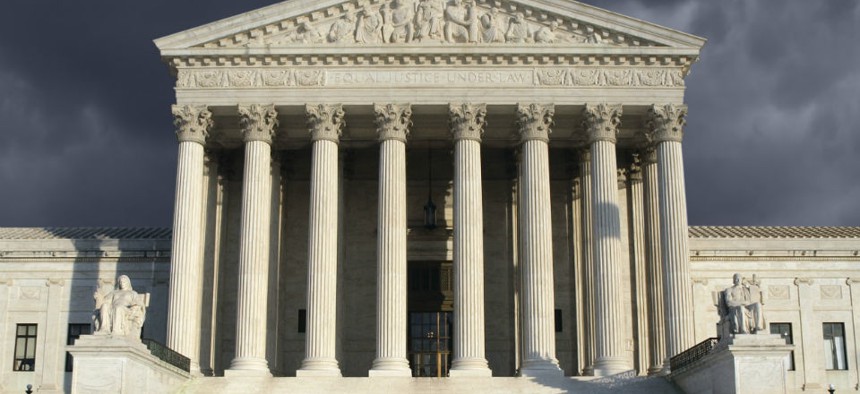
trekandshoot / Shutterstock.com
Special Counsel to Supreme Court: Don’t Unravel Whistleblower Protections
Amicus brief defends ex-Homeland Security air marshal.
This story has been updated.
In a first since enactment of the 2012 Whistleblower Protection Enhancement Act, the Office of Special Counsel on Monday filed a friend-of-the-court brief with the Supreme Court, siding with a former Transportation Security Administration air marshal whose pending case is a cause celebre among whistleblower advocates.
The brief backs Robert MacLean, who was fired in 2006 after disclosing three years earlier that the Federal Air Marshal Service was stopping assignment of marshals to long-distance flights despite intelligence warnings of heightened terrorist threats to such flights.
The brief argued that federal agencies should not be permitted to circumvent whistleblower protections through rules restricting the disclosure of certain information. Oral arguments in the Supreme Court are scheduled for Nov. 4.
Were the high court to reverse an April 2013 Federal Circuit Court decision ruling that MacLean’s disclosures were protected, it would seriously threaten “OSC’s ability to enforce . . . whistleblower protections and deter agencies from retaliating against employees,” the brief argued.
“If the court reverses, potential whistleblowers will have to weigh whether their agency might one day retroactively determine that the information they disclosed is [sensitive security information], thereby exposing them to discipline,” OSC’s brief stated. “Moreover, in fear that such retroactive designations are possible, whistleblowers may refrain from alerting the public to dangers that could have been averted or mitigated.”
Special Counsel Carolyn Lerner’s team also expressed concern that agencies “over-designate the information that is to be prohibited from disclosure as a means of suppressing a broad swath of information and stifling whistleblowers. Likewise, agencies may selectively enforce such broad regulations to punish and deter whistleblowing,” the brief said. “In light of Congress’ central goal to encourage disclosures and restrain agencies, it is doubtful that Congress would vest agencies with the power to eliminate the very restraint it placed on agencies’ own actions.”
Homeland Security Department attorneys argued that MacLean disclosed sensitive security information, and that such disclosures are not protected unless made through specific channels. After MacLean challenged his firing, the Merit Systems Protection Board ruled against him, saying his actions did not fall under the Whistleblower Protection Act because they were explicitly prohibited by law.
Also on Tuesday, a bipartisan group of lawmakers submitted its own amicus brief, also in support of MacLean. “The Whistleblower Protection Act supersedes any rules or regulations created by federal agencies,” stated the brief signed by Sens. Chuck Grassley, R-Iowa., and Ron Wyden, D-Ore., along with Reps. Darrell Issa, R-Calif.; Elijah Cummings, D-Md.,; Blake Farenthold, R-Texas; and Stephen Lynch, D-Mass.
In an email to Government Executive, MacLean noted the delays the MSPB hearing caused in his and a similar case, saying, “if the Federal Circuit's decision gets reversed, the perfect whistleblower facing the worst agency controlled unclassified information order has to gamble on almost three years of federal appeals court litigation. I don't think the public expects federal employees wishing to expose wrongdoing to rely on and pay so much for attorneys.”
Tom Devine, legal director of the nonprofit Government Accountability Project, said, “The OSC’s brief confirms that the issue in this case is the Whistleblower Protection Act’s survival as an independent check on agency secrecy rules, not merely justice for Mr. MacLean. We’re not surprised, because the OSC has not hesitated to use its amicus authority to defend the merit system.”
(Image via trekandshoot / Shutterstock.com)







